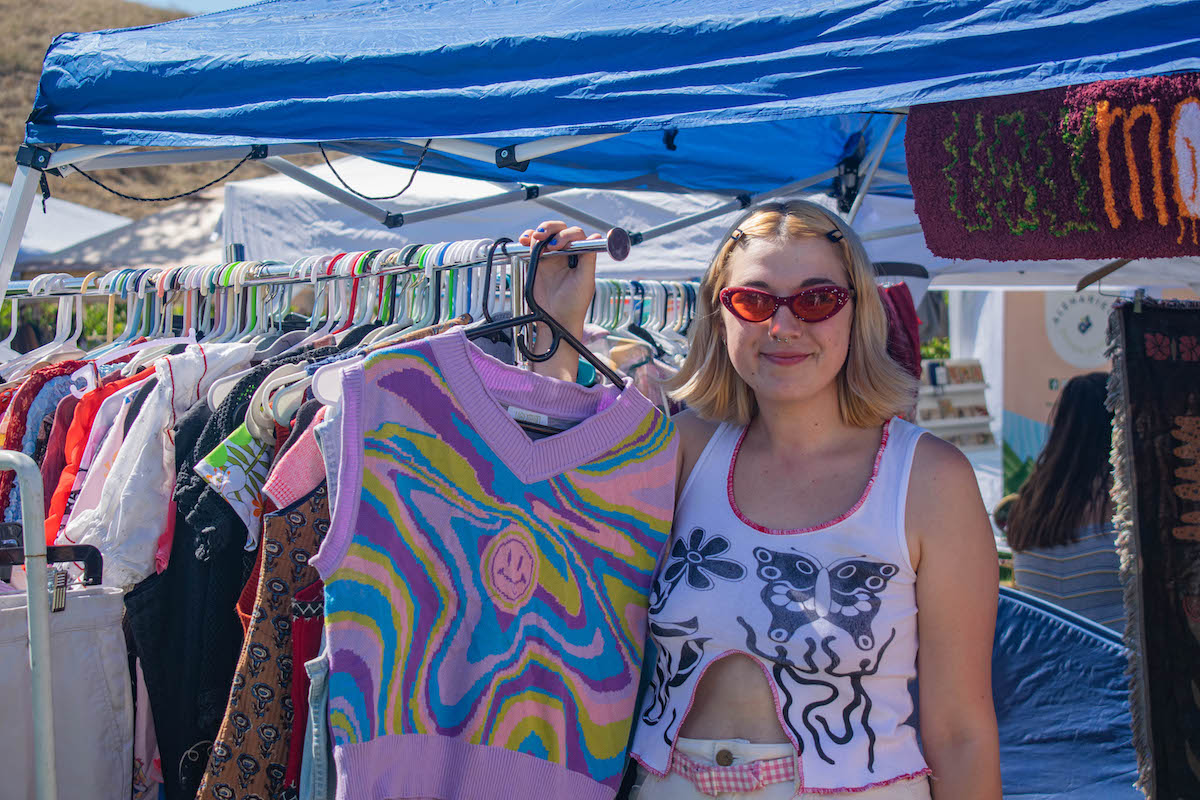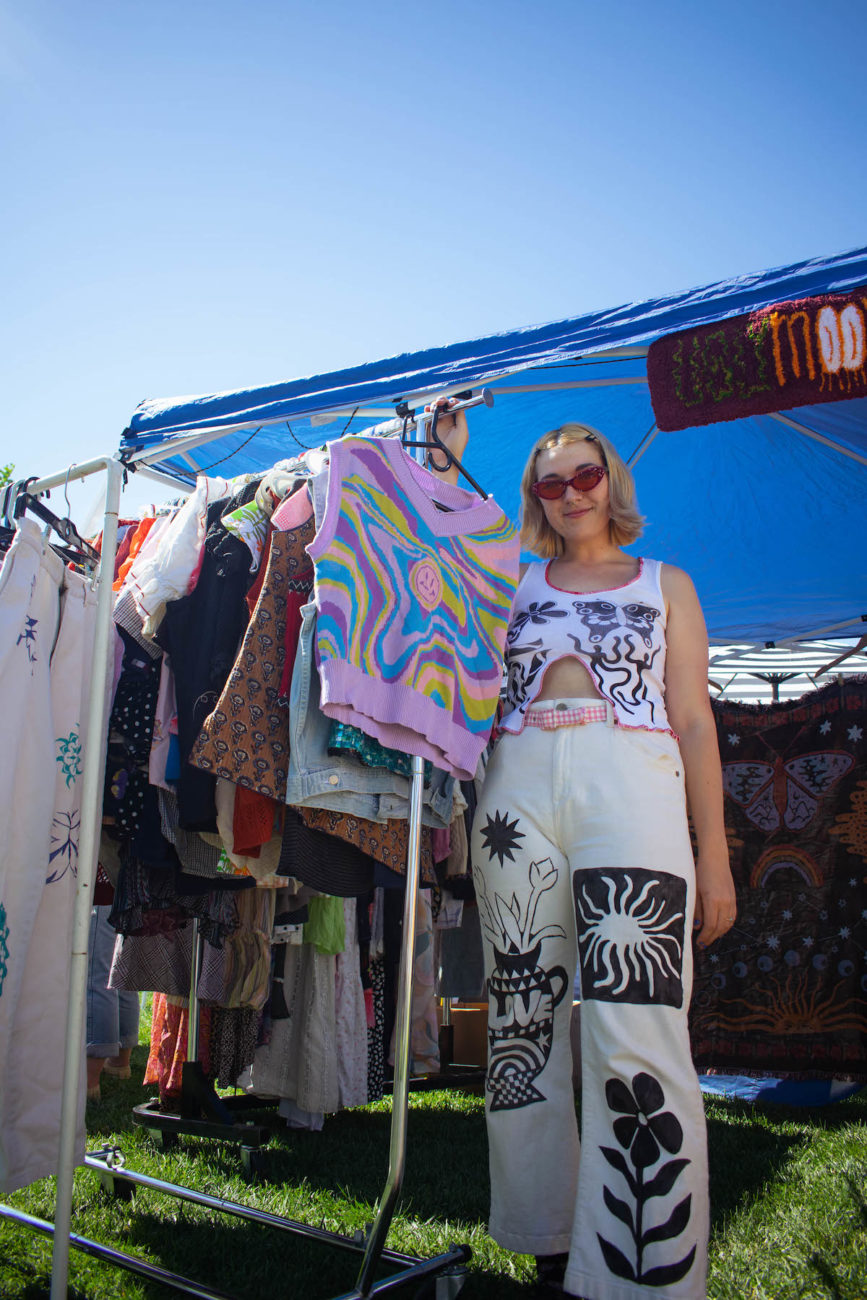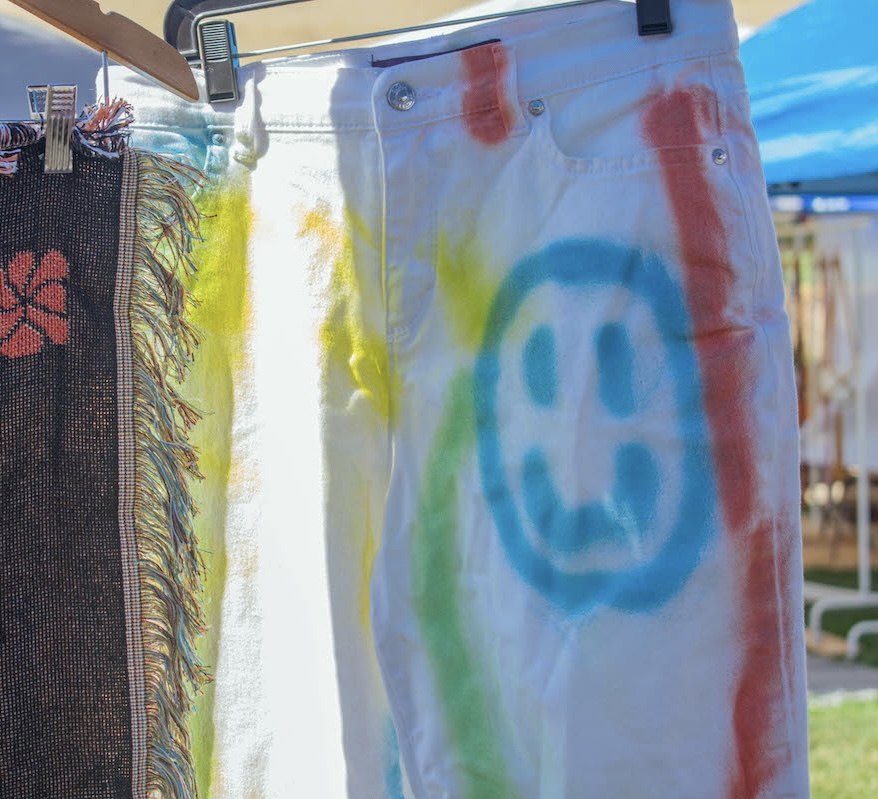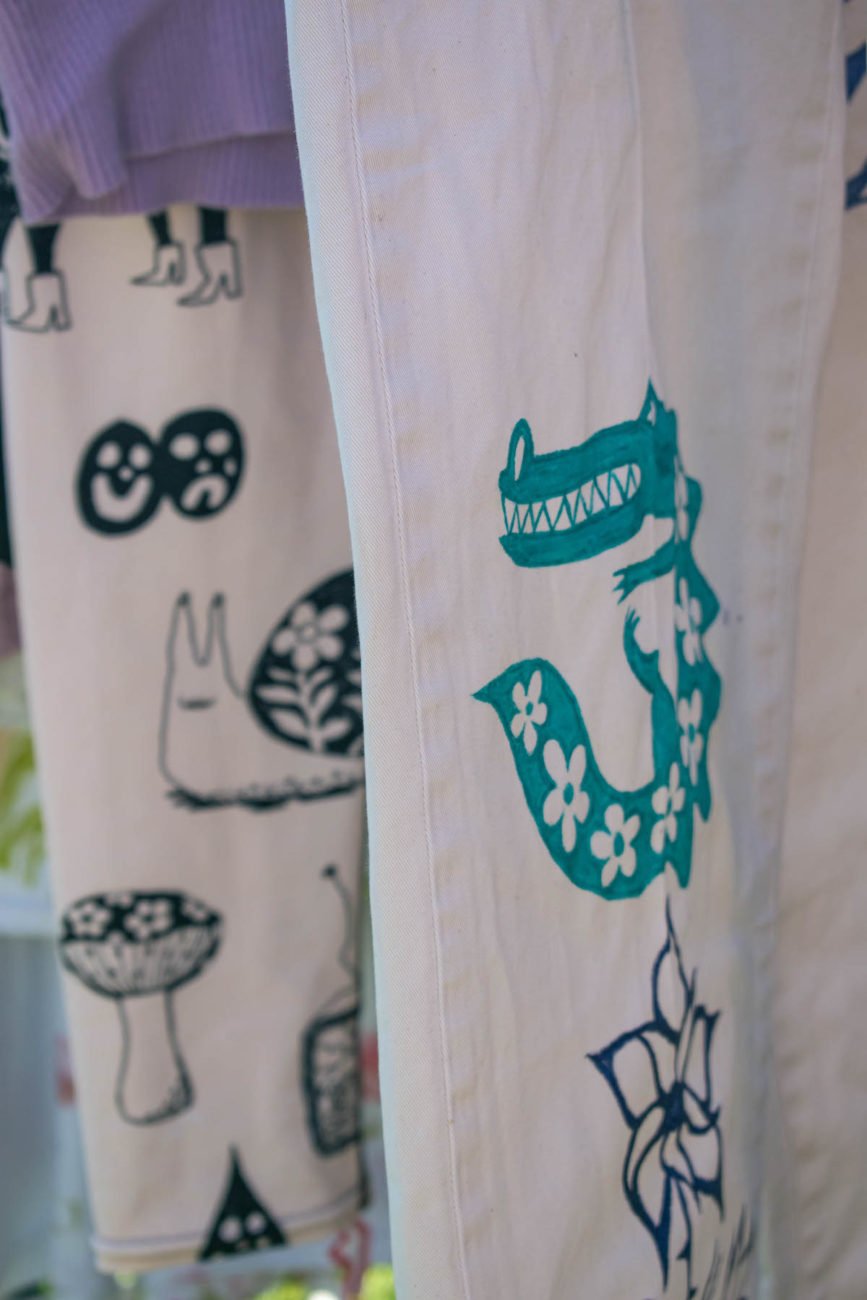Local fashion business Shop Uglymoon honors individuality and sustainability

The sustainable clothing brand Shop Uglymoon began when founder Sequoia Wolfe started selling her own handmade jewelry out of the van she lived in. In the beginning, Wolfe went to shops around San Luis Obispo and asked if they would carry her jewelry. By age 23, she was selling clothing on Depop and saved enough to move into a studio where she could expand her business. What began as a hobby soon turned into a business pursuit.
The name Shop Uglymoon came from Wolfe’s love of “ugly things that are cute,” she said. “I’ve always been drawn to things that are a little bit quirky or edgy and I think it fits my personal art style.”
Shop Uglymoon sells one-of-a-kind clothing, promotes sustainable fashion and collaborates with other local artists who sell apparel. Wolfe creates her own designs that are then screen-printed onto clothing. She also upcycles and sources vintage pieces that she sells at pop-ups. The uniqueness of her clothing derives from her desire to create and support herself as an artist.

Wolfe does not work around a set schedule for each day; instead, each day is an adventure. Sometimes she drives to Los Angeles for estate sales where she finds vintage clothing for her pop-up shops. Mostly she spends each day drawing, designing and upcycling, using techniques such as appliqué (patchwork), screen printing as well as spray painting.
When she was younger, Wolfe was inspired by Japanese streetwear and Harajuku fashion.
Much of the clothing she sells now reflects the originality she saw in that fashion.
“That was my ultimate inspiration as a kid as far as style goes because I liked how they mixed and matched their clothing,” Wolfe said. “Pretty much everything is super DIY.”



Besides maintaining the individuality of the brand, Wolfe wants to emphasize and promote sustainability and reduce waste.
“Today, fast fashion is a leading cause of waste and is harmful to the planet,” Wolfe said. “People are turning to small businesses and artists to solve this problem. ‘Shopping small’ is growing in popularity.”
The clothing she sells is sourced ethically through thrifting, handmade to order or drop shipped by Printful, which Wolfe credits as a huge contributor to her success. Printful is a company that practices print on demand — meaning the pieces are made only after the order has been placed — reducing the waste of clothing that is left unsold. Wolfe likes this company because their practices are more sustainable than buying t-shirts in bulk.
Ultimately, sustainability is Wolfe’s main goal. As she continues to grow her business, her next goal is “to have a physical space where I can support other artists who like to create,” Wolfe said. “I feel like I’m finally at the point where it’s like I know the direction I’m headed.”


